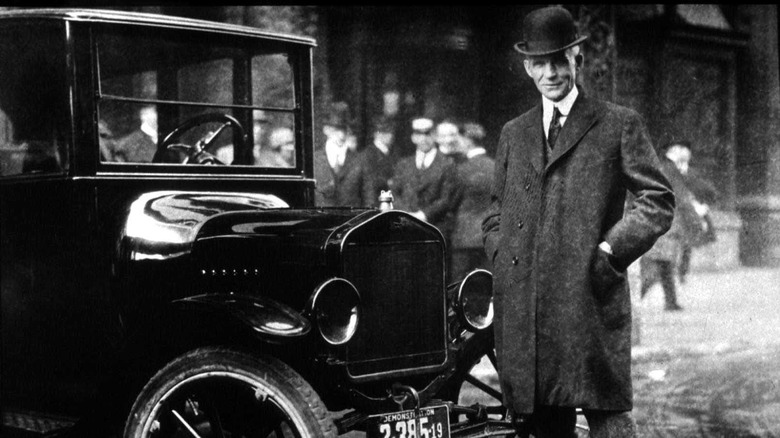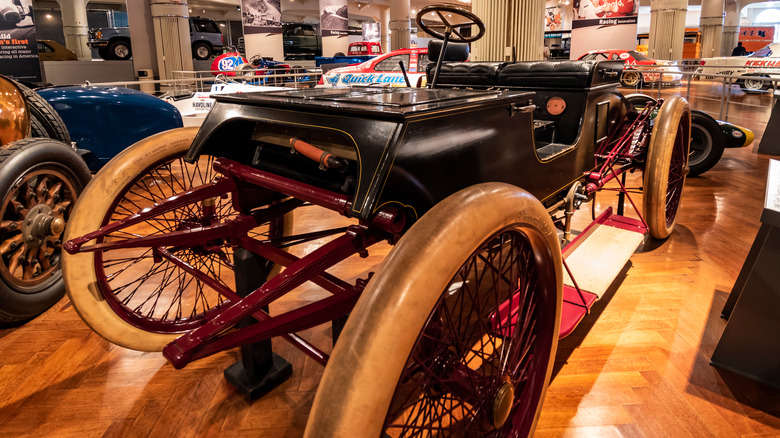Henry Ford Only Raced Once – And He Beat One Of The World's Best
Long before Ford took on Ferrari at the 24 Hours of Le Mans in the 1960s, it was clear to Henry Ford (the 1st) that racing was a crucial aspect to selling cars, even at a time when most people didn't own them. We now historically associate Ford with mass production and accessibility, but back in the early 1900s, most Americans saw cars as a luxurious, unapproachable dream, sort of the way we might view private jets now. Cars were generally fast little novelties you watched in races, and not something you ever imagined owning.
Ford wanted to change that perception and bring along investors to push forward his idea of the accessible, mass market vehicle. But he had a few problems: No one had really heard of him outside of Detroit, and his first incarnation of Ford Motors, the Detroit Automobile Company, shut down in 1900.
"I never thought anything of racing," he once said. "But the public refused to consider the automobile in any light other than a fast toy. Therefore, later we had to race."
The 1901 Sweepstakes Race
While Ford fielded numerous race car drivers in the decades to come, this was the only race he decided to take on himself, at the 1-mile oval of the Grosse Pointe Race Track in Michigan. His opponent was Alexander Winton, a seasoned race car driver, automobile manufacturer, and the clear heavy favorite, who was also trying to bring attention to his own company, the Winton Motor Carriage Company. Ford's "Sweepstakes" car featured approximately 26 horsepower, two-cylinder engine, porcelain insulated spark coils, an early form of fuel injection, and perhaps most importantly, mechanical assistant Ed "Spider" Huff, who crouched on the sideboard manually lubricating and fueling the car during the 10-lap race.
Three laps in and Winton pulled ahead by 300 meters, but Ford quickly gained ground and cut into the lead as the crowd cheered on their hometown boy. Soon Winton's car began to experience mechanical problems and Ford pulled away and won the race, reaching a then record of 72 miles per hour over a half mile. The win helped secure increased notoriety and financial backing, and 18 months later Ford founded the Ford Motor Company, which stuck around a bit longer than his last outfit.
No one places Henry Ford up there with the great race car drivers of the 20th century, but with no losses, defeating a much better driver, and a post-race victory lap that involves building one of the most successful car companies in history, it's not a bad record.

